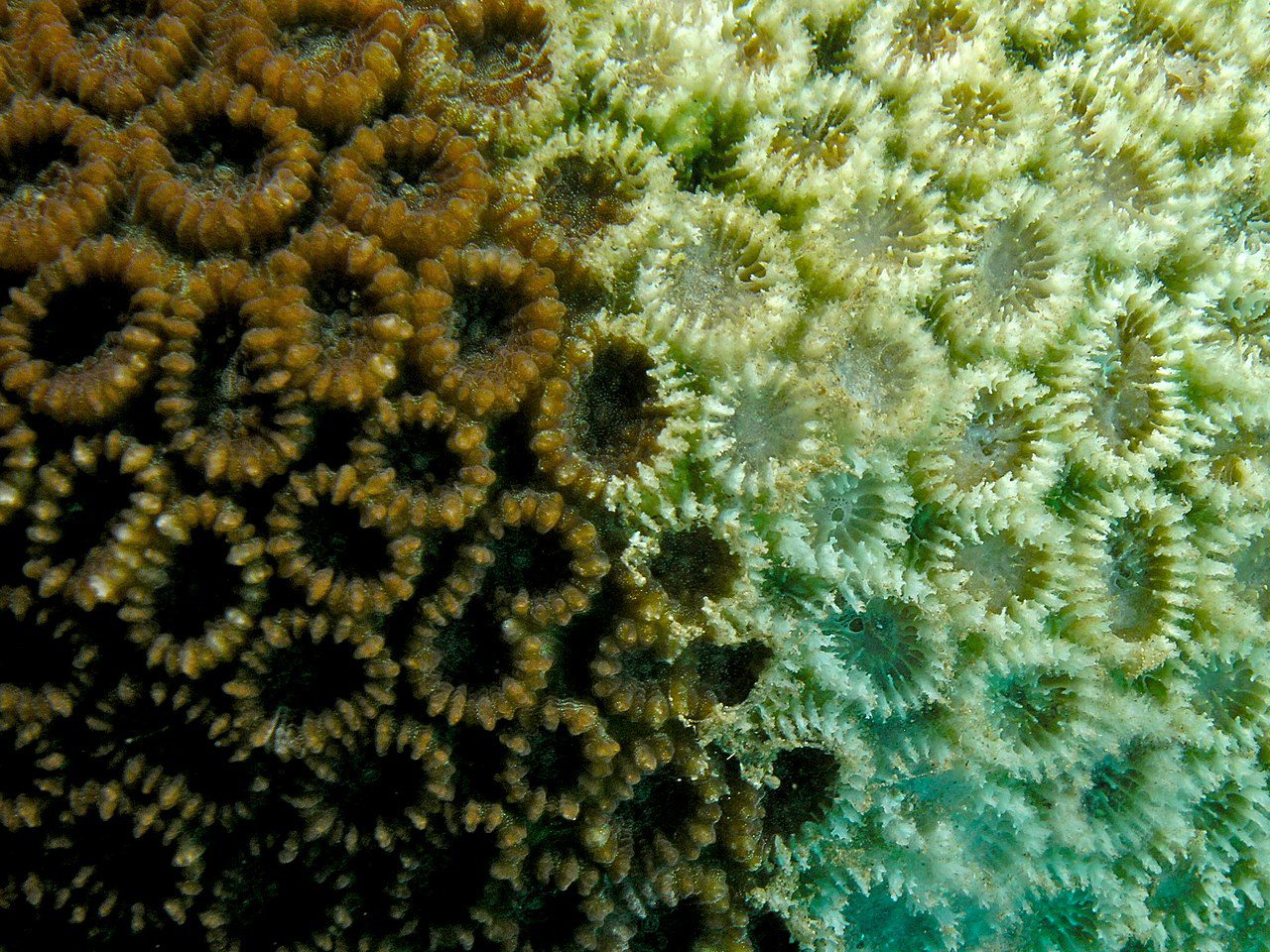
The effects of climate change, such as coral bleaching, become slow-motion disasters, with knock-on effects for years
For Tim McClanahan, a zoologist studying fisheries, what happened in Kenya during the spring of 1998 was a wake-up call.
Between March and July of that year, a rare climatological double whammy sent ocean temperatures spiking 1 to 2 degrees Celsius above the normal range for spring and summer. An unusually intense El Niño weather pattern coincided with the warm phase of another cyclical area weather event.
This turned out to be a slow-motion disaster. Half the corals in the region bleached and died that year. Some had a 90 percent loss. “The bleaching and mortality event took about six months to fully unfold, but many of the reefs have not recovered even today — 14 years after the event,” said McClanahan, an employee of the Wildlife Conservation Society. He has spent more than 20 years working along Kenya’s southeastern coast.
It took four years before scientists could definitively show dramatic declines in three commonly caught species of food fish. The lag and the devastating results got McClanahan thinking about climate change’s potential to damage the economies of communities that traditionally rely on fish to eat and fish to sell.
He’s not alone in pondering the fate of the world’s fisheries in a changing climate, and how the fortunes of fish will affect the lives and livelihoods of more than 1.5 billion people who depend on seafood for at least a fifth of the animal protein they consume.
“This is an area that is pretty seriously underresearched, I think,” said Edward Allison, a senior fellow at the University of East Anglia’s School of International Development. “The rest of agriculture sometimes forgets fisheries, and the fisheries sector has been a little slower than others to realize the potential seriousness of climate change impacts.”
Already, there is evidence that as the ocean warms, many commercial fish stocks are moving poleward in search of cooler waters. Rising ocean temperatures have triggered coral bleaching events that have caused widespread damage to the world’s reefs, which serve as a habitat for many species.








